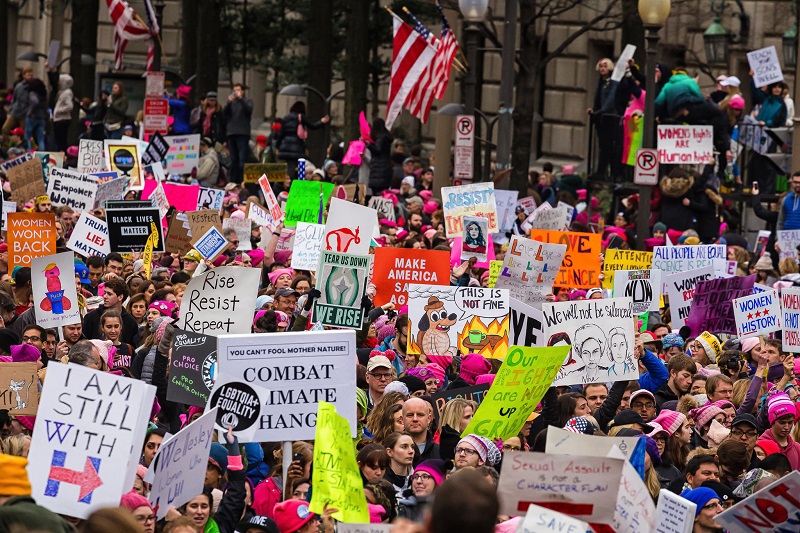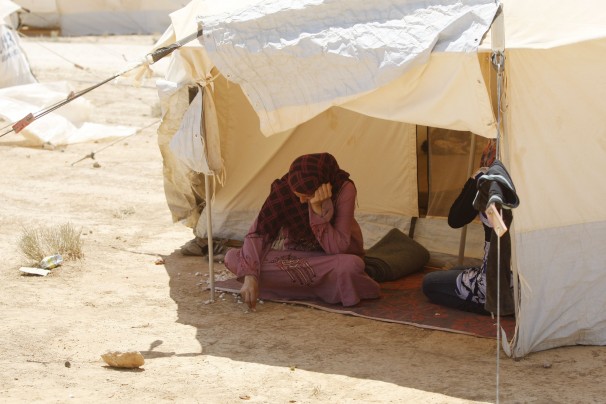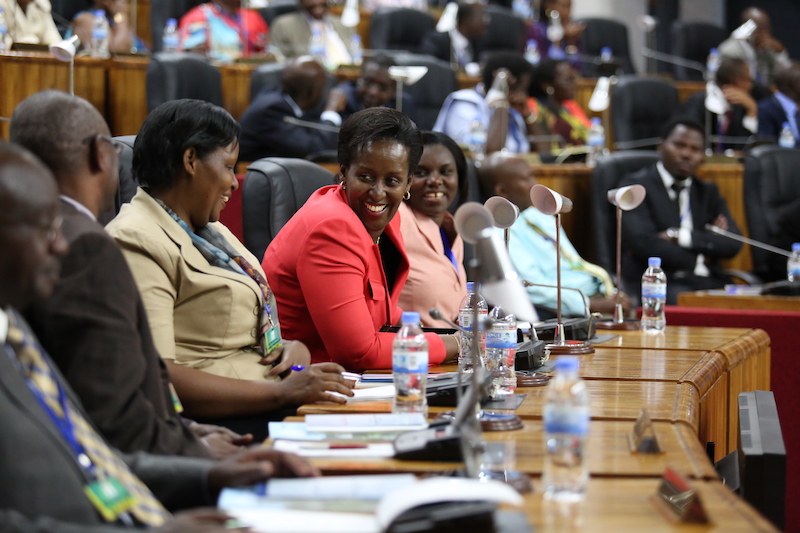Before President Donald J. Trump had even won the Republican leadership race, women were concerned. Many argued that Trump was running on a campaign of hate and misogyny. After his election, for many this concern escalated to terror and despair.
A great deal of Donald Trump’s comments disrespecting women are well known, including the frequent objectification, the assessment of women’s capabilities based on their attractiveness, calling them “nasty”, and “disgusting”, and infamously boasting that he grabs women “by the pussy” without obtaining consent. When he was questioned about many of these events by journalist Megyn Kelly in the first Republican debate, he referred to her as a bimbo and suggested her questions were due to the fact that she was menstruating.
These comments are not only ridiculous, offensive and extraordinarily childish, but extremely frightening (read NAOC’s Isabel Zucchero’s excellent overview of this issue here).
However, in light of these troubling events there has been an enormous outpouring of support for women and some advocacy for gender equality. Speeches have occurred all across America, including by some very powerful feminist advocates, such as Gloria Steinem at New York City’s Barnard College. The dialogue about women’s rights in a Trump era includes an encouraging number of voices, and not just from long-time gender warriors such as Steinem. Planned Parenthood, an organization offering birth control, sexual transmitted disease and infection (STI/STD) information and treatment as well as pap tests, has continually organized events across the country after Trump’s repeated threats to defund them. Their president Cecile Richard was invited to The Daily Show with Trevor Noah to discuss how important access to sexual health services is for women. Celebrities have also been very vocal, using social media to express their discontent and support for women and racial, ethnolinguistic, cultural, and religious minorities.
Perhaps most notably, this weekend we saw a truly extraordinary turnout at Women’s Marches all across the world. Over one million attendees participated in the United States alone, with an estimated 100,000 in London, 5,000 in Australia, and over 60,000 in Toronto. In Washington, The New York Times reported estimates that the Women’s March drew three times more attendees than President Trump’s inauguration. Women were marching in India as well under the campaign “I Will Go Out,” demanding the right for women to walk safely in public spaces.
Recent attention to these issues has also resulted in some very constructive discussions about the intersectionality between things like race, religion, sexual orientation, and gender. Middle class white women, are expressing the need to listen more closely to women of colour and groups that face multiple forms of discrimination. Signs at the various women’s protests across the world also included support for intersectionalism, including a drawing of a woman wearing an American flag as a hijab and slogans like “I support my black, trans, immigrant, gay, Muslim, disabled, indigenous sisters”.
In my own city of Toronto, taking the subway home on Saturday afternoon was incredibly inspiring. It was as if every stranger on the subway was looking at women and telling them they supported them, that they were with them, and that they cared about their welfare. The Women’s March was an enormously important step for people across the world including women, men, gender fluid individuals, children (and even some dog marchers!) to express their support for gender equality and declare that they will not be silent if women’s rights are infringed upon.
Although motivated by some very troubling dialogue, the advocacy and support between marginalized groups has been incredibly powerful. This is an important moment. This network of support can continue to grow and extend to the many others who feel vulnerable and afraid.
Photo: Women’s March on Washingston (2017), by Mobilus in Mobili via Flickr. Licensed under CC BY-SA 2.0.
Disclaimer: Any views or opinions expressed in articles are solely those of the authors and do not necessarily represent the views of the NATO Association of Canada.




